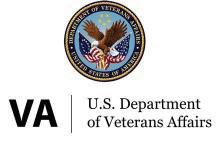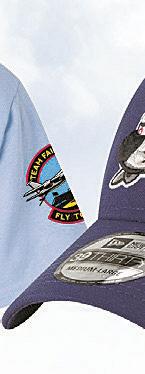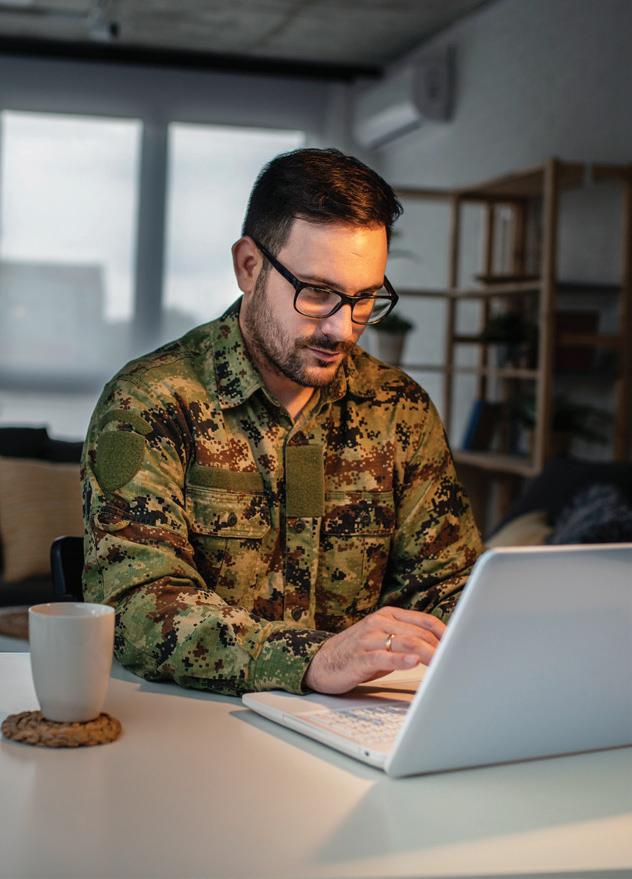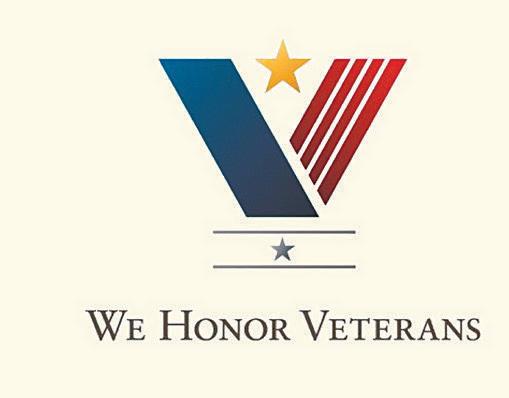VETERANS CHRONICLE
MAY


MAY

(Editor’s note: We asked AI Chat to tell us about the differences between the holidays: the interesting results are below.)
Memorial Day is a federal holiday in the United States that is observed on the last Monday of May. It is a day to remember and honor men and women in the armed forces who died while serving their country.
The origins of Memorial Day can be traced back to the late 19th century, when various communities across the country began to hold tributes and remembrances for their fallen soldiers. The first official observance of Memorial Day was on May 30, 1868, when General John A. Logan proclaimed a day of remembrance for the Union soldiers who had died during the Civil War.
Over time, the holiday evolved to include honoring all those who have died in service to their country. Today, Memorial Day is observed with parades, concerts, and visits to cemeteries and memorials where loved ones are buried. It is a solemn and important occasion to remember those who made the ultimate sacrifice for their country.
Memorial Day and Veterans Day are both important holidays in the United States that honor the men and women who served in the military. However, there are some key differences between the two holidays.

Memorial Day is a day to remember and honor the men and women who died while serving in the military. It is a time to pay tribute to those who made the ultimate sacrifice for
their country. Memorial Day is always observed on the last Monday in May.
Veterans Day, on the other hand, is a day to recognize and thank all veterans who have served in the military, both living and deceased. It is a time to show appreciation for the brave men and women who have served their country. Veterans Day is observed on November 11th every year.
While both holidays share similarities in that they both honor the sacrifices of those who served in the military, there is a significant difference in what each holiday focuses on. Memorial Day is about remembering and honoring those who died while serving, while Veterans Day is about recognizing and thanking all veterans who have served.

You may be eligible for VA disability benefits or compensation if you meet both of these requirements:
You have a current illness or injury (known as a condition) that affects your mind or body, and
You served on active duty, active duty for training, or inactive duty training
And at least 1 of these must be true:
• You became sick or injured while serving in the military—and can link this condition to your illness or injury (called an in-service disability claim), or
• You had an illness or injury before you joined the military—and serving made it worse (called a preservice disability claim), or
• You have a disability related to your active-duty service that didn’t appear until after you ended your service (called a post-service disability claim)
For some conditions, we automatically assume (or “presume”) that your service caused your condition. These are presumptive conditions.
If you have a presumptive condition, you don’t need to prove that your service caused the condition. You only need to meet the service requirements for the presumption.
Find out more about these categories of presumptive conditions:
• A chronic (long-lasting) illness that appears within 1 year after discharge: www.va.gov/disability/eligibility/illnesses-within-one-year-of-discharge
• An illness caused by contact with contaminants (toxic chemicals) or other hazardous materials: www.va.gov/ disability/eligibility/hazardous-materials-exposure
• An illness caused by your time spent as a prisoner of war: www.va.gov/ disability/eligibility/former-pows
Who’s covered?
• Veterans
• Qualified dependents
How do I file a claim?
You can file a claim online now at www.va.gov/disability/file-disabilityclaim-form-21-526ez/. You can also file
by mail, in person, or with the help of a trained professional.
(Learn more about how to file at www.va.gov/disability/how-to-fileclaim)
You may be able to get VA disability benefits for conditions like these:
• Chronic (long-lasting) back pain resulting in a current diagnosed back disability
• Breathing problems resulting from a current lung condition or lung disease
• Severe hearing loss
• Scar tissue
• Loss of range of motion (problems moving your body)
• Ulcers
• Cancers or other conditions caused by contact with toxic chemicals or other dangers
You may also be able to get VA disability benefits for conditions like these:
• Traumatic brain injury (TBI)
• Post-traumatic stress disorder (PTSD)
• Depression
• Anxiety
Get more information
Go to the Compensation 101 videos to learn more about how VA disability compensation works:
Compensation 101: What is disability compensation? www.youtube. com/watch?v=T3RodE0nGFc
Compensation 101: What is service connection? www.youtube.com/ watch?v=h4vKqUlrdys
For more information go to VeteransHelpnet.com and see the “How can I get help?” section or contact Spokane County Regional Veterans Service Center at (509) 477-3609











 By Ryan Finnegan USMC/VFW POST 5924
By Ryan Finnegan USMC/VFW POST 5924
On the third Friday of each month a small, rural Veterans of Foreign Wars post in Elk, Washington, takes time during its weekly dinner night to honor post-9/11 fallen service members and their families.
In November 2022, VFW Post 5924 partnered with the Washington State Fallen Heroes Project to display two fallen hero banners each month. These banners represent post-9/11 service members who died in service or as a result of their service. Alongside the banners, the post frames a one-page write-up about each of the fallen members.
A simple desire to honor and remember our fallen soon turned into a monthly event. Coordinating with the Washington State Fallen Heroes Project, the post now invites surviving families to a monthly steak dinner and pays for their meals. It’s a small token of the post’s appreciation for the sacrifice these families endure daily. ‘Hero Night’ dinners have become very popular and continue to grow each month as more come out to show their respect and appreciation.
At 6:30 p.m., the ceremony begins by drawing everyone’s attention to the illuminated banners, hung in the dining area of the post. Each fallen hero’s write up is read by a veteran from their respective branch of service. The goal is to send a small piece of the service member’s story home with each person in attendance. After the reading is complete, tribute is paid to the POW/MIA Missing Man table, and a moment of silence is observed for those men and women who never made it home. As the ceremony draws to a close, surviving Gold Star families in attendance are recognized.
Not only is this event special to the VFW Post and VFW Auxiliary members, but it is also a special evening for the Gold Star Families. Keirsten Lyons, a Gold

Star Mother and President of the Washington State Fallen Heroes Project agrees.
“Leave it to a small town to make such a big impact on our surviving families,” she said. “It’s been so heartwarming to see and be a part of these Hero Dinners. When they honor one, it’s as if they’re honoring all, and it has meant the world to us. We look forward to continued partnership with the post.”
To date, VFW Post 5924 has honored: Army 1LT Forrest Ewens, Army CW2 Ben Todd, Army National Guard Sgt. Shane Guszregan, Navy ND2 Jacob Bare, Marine Corps LCpl. Eric Ward, Army Staff Sgt. Danielle Nienajadlo, Navy FC2 Brandon Olson, Army CW2 Clint Prather, and Air Force MSgt. Jerred Shorthill. The most recent Heroes Dinner Night took place May 19. A toast is planned at 3 p.m. May 29.
To learn about future Heroes Dinners, or to read about the heroes who have already been recognized, please visit the “VFW Post 5924” Facebook page.
Ryan
a Marine Corps veteran and member of VFW Post 5924 in Elk.
Every county and state has a Veteran Affairs office to answer questions about benefits and provide assistance. There are also other useful resources for veterans in the Inland Northwest.
VA.gov
The Department of Veterans Affairs website has resources on every topic relevant to veterans.
VA.gov/welcome-kit
The VA Welcome Guide covers all types of benefits and services available for veterans, new recruits, active service members and their families.
A spouse caregiver of a disabled veteran can be paid as a caregiver under the VA “Aid and Attendance Benefit.” Aid and Attendance is a benefit paid by Veterans Affairs to veterans, veteran spouses or surviving spouses. It is paid in addition to a veteran’s basic pension. The benefit may not be paid without eligibility to a VA basic pension.
There are two big myths going around about the PACT Act. One is that it’s only for Vietnam-era veterans. The Act actually applies to any service member, or their family, stationed at numerous locations throughout the United States and many other international locations. They may be eligible even if injuries were suffered years ago, or if the service member is deceased.
A second myth is that filing for new benefits puts your old benefits at risk. The new law goes beyond VA disability and will NOT affect current benefits or disability status.
Many older veterans find they
have PTSD symptoms even 50 or more years after their military experience. Some symptoms of PTSD include having nightmares or feeling like you are reliving the event, avoiding situations that remind you of the event, being easily startled, and a loss of interest in activities.
Changes that come with aging can make you feel more vulnerable, and this can make your PTSD symptoms more noticeable.
Strategies that once seemed to help you avoid thinking about the trauma, like long hours spent at work or self-medicating with alcohol or drugs, may no longer work. Even positive coping strategies, like exercising or friendships with supportive peers, can be more difficult to maintain as you get older.
For an overview of PTSD and aging, including examples of how aging can affect PTSD, download the Understanding PTSD and Aging booklet www. ptsd.va.gov/publications/print/ understandingptsd_aging_booklet. pdf

For more information on any of these topics, go to VeteransHelpnet. com and see the “How can I get help?” section or contact Spokane County Regional Veterans Service Center at (509) 477-3609.
DAV9.com
Based in Post Falls, Disabled American Veterans Chapter 9 Fort Sherman shares links and information to both local and national help organizations for veterans.
Explore.VA.gov/benefitsnavigator
Explore VA benefits and discover which ones you and your family may be eligible to receive.
Spokane County Regional Veteran Service
1117 N. Evergreen Rd., Spokane Valley, WA (509) 477-3690
Apply for emergency services, or have any benefits or service questions answered by 5 Veteran Service Officers (VSO) and staff.
North Idaho Veteran Services and Benefits Office
120 E. Railroad Ave., Post Falls, ID (208) 446-1092
Meet with a VSO or staff for help with VA benefits enrollment, claims or other veteran needs.
Goodwill Support Services for Veteran Families (SSVF)
130 E. Third Ave., Spokane, WA (509) 828-2449
SSVF helps homeless veterans and their families find housing and connects veterans with other support organizations.
Healthcare for Homeless Veterans (HCHV)
504 E. Second Ave., Spokane, WA (509) 435-2019
Provides healthcare and outreach for housing, job opportunities and counseling.
Spokane County Regional Veteran Service (509) 477-3690
North Idaho Veteran Services and Benefits Office
120 E. Railroad Ave., Post Falls, ID (208) 446-1092
Veteran Crisis Line 1 (800) 273-8255, press 1
North Idaho Crisis Center (208) 625-4884
Washington or Idaho 2-1-1 Dial “2-1-1” for health and human resources referrals.



 By David Sutton VETERANS HELPNET CORRESPONDENT
By David Sutton VETERANS HELPNET CORRESPONDENT

(This is the first of a four-part series about combat trauma and efforts to reduce it.)
“Trauma”: It has become a common word in the military community. It comes from the Greek word that means “to wound.”
Webster’s dictionary defines trauma as: “an injury to living tissue caused by an extrinsic agent; an emotional stress or physical injury.”
Trauma is real and it affects hundreds of thousands of people in the United States. In the military it especially enters the lives of our soldiers, Marines, sailors
and airmen, whether active, retired or in reserve. And it affects their families in many cases.
REBOOT RECOVERY is a faith-based-volunteer program that offers healing to those who suffer from the effects of trauma. The program is designed to be led by peers of those touched by the physical, mental, and moral effects of trauma and tragedy.
The group meets once a week for 12 weeks. One recovery method uses modules that can be viewed or taught by a leader.
“The people in the groups use simple conversation in an attempt to help each other,” said Ret. Army Lt. Col. Rusty Pritchard, a trained leader and a graduate of the program.
“We train spouses, partners, and caregivers. They become leaders and eventually train others to assist in the program.”
Since 2011 REBOOT RECOV-
ERY has helped thousands of veterans and their families overcome the trials, tragedies and trauma of their past. The in-person training deals with the trauma of combat, first responder reactions and experiences, and other difficulties of those who have been wounded.
“We find that some of those veterans who suffer from trauma or tragedy are not ready to resolve the effects and deal with their emotions and feelings,” Pritchard said. “In some cases it may take up to 40 years to finally
ask for help.”
The recovery program includes the entire family in some way or another. Each week there is a free meal for the whole family. Childcare is provided along with an open time of fellowship.
“Faith based” does not mean preachy-type sessions, Pritchard said, “however, the leaders do not hide that fact that trauma affects the soul of a person. So the sessions are laced with answers for a wounded spirit’s questions and are found in Scripture.”
One first responder noted, “Why is it the first responders are often last to seek help for their own struggles? It is common for them to take their jobs home with them. The sights, sounds and smell of their experiences can chip away at their emotions, their mental state, and their spiritual well-being.”
“It got to a point where I did
not know where to go (for help)”
Soldiers often point out that the war does not end when they no longer are deployed.
“If your mind and body are wounded, doesn’t it stand to reason that your soul can be wounded as well,” said one of the veterans.
Part of the REBOOT RECOVERY philosophy and training notes, “Trauma need not control your life any longer. Overcome trauma and embrace a brighter future. It is not easy, but it will be worth it. (The training and recovery program) could change your life forever.”
For information about the next meeting or other questions, please contact Rusty Pritchard at (509) 995-0631.

Dr. David Sutton is a freelance writer for Veteran Help. Part 1 in this four-part series deals with combat trauma.

When you’re ready to build, buy or update your home, our experts can help you achieve your dreams. We’re here to guide you through the lending process and offer the right financing solution for your situation.
Our ambassadors, of which I am one, work to connect veterans to Idaho’s great outdoors by coordinating events such as big game hunting camps, waterfowl trips, fishing tournaments, turkey hunts, family camps, gold prospecting, and shooting events.

This past week we took out a father and son on a turkey hunt and the young man bagged his first ever turkey! It had a 10½-inch beard and 7/8-inch spurs! He will probably spend the rest of his life trying to beat that length of beard.

Last year we took out several severely disabled veterans, one requiring oxygen 24/7. He had not been out camping or away from his own house in over five years. He harvested a nice white tail.
Every day we hear about scientific studies that expound the benefits of being in the outdoors.
Recently a study found that our boreal forests emit a chemical that is beneficial to humans in a measurable way, to the point of even easing depression!
The Ambassadors of Idaho Backcountry Veterans aim to get as many of our war-impacted vets into this serene yet challenging environment as possible, but we need your help.
We are always looking for new adventures and places to take the veterans hunting, fishing, and
enjoying the outdoors. We make sure 100% of all proceeds go directly to sponsoring events for our veterans. Ambassadors do this for the joy of helping. If you can help, please reach out to me.
Robert Isenberg is an Ambassador for the Idaho Backcountry Veterans. He can be reached at LTCRIce@hotmail.com. To learn more about the organization visit www.backcountryveterans.org.

The Idaho Backcountry Veterans is an outdoor nonprofit (501C3) created for our veterans to enjoy quality hunting, fishing, and other sporting activities.COURTESY PHOTOS
cially during wartime. Will my husband come home? Will he be wounded or disabled? Will the culture affect or disrupt his life?
By David Sutton VETERANS HELPNET CORRESPONDENTThe shocking news invaded the entire household. The unexpected was bound to happen. Military families were about to be separated for the first time, for as long as a year perhaps. Orders to deploy had been issued!
Wives began the anticipated feelings of the agony of separation from their husbands. Will there be loneliness? What if there is an emergency in the family? How will younger wives deal with supporting a military unit that has taken away their dependence upon their husbands? How can a woman be a mother and father at the same time? These and many other questions come to the mind of military wives as they deal with the perils of their husband’s chosen profession of wearing a military uniform.
Each of the military services make provisions to support wives and families during deployments. The Air Force, Army, Navy and Marines establish the support groups within their individual units. All of the support organizations implement basic programs that prepare spouses for the separation. Pre-deployment and anticipation training coupled with practical resources are offered along with other support groups. Each military service group offers creative programs of support. The basic physical, psychological, social, and spiritual needs are met in each program.
“The hardest part of being separated is not knowing anything about the country and culture my husband will be living in every day,” noted Susan, an Air Force wife. “This the first time we have been separated for such a long time. This is his job, and he is
trained for it. He is highly skilled.
I am thankful that the Air Force does not leave us young wives feeling like we have been abandoned.”

The Air Force has programs in place sponsored by the Department of Defense and implemented in individual wings. For example, Fairchild Air Force
Base has a Family Readiness group supported by the 92nd Air Refueling Wing. The Army has a similar Family Advocate Group with a main office at Joint Base Lewis-McChord. Both support groups are available to all local Air Force and Army wives, if needed.
“Sometimes I get scared. But
I know I must be strong for the kids,” said Mary, a veteran Army wife and mother of four. “Our kids were raised on Army posts and spent time with other kids whose dads have been deployed up to six times.”
Fulfilling the role of mom and dad at the same time is demanding but certainly not unique in a military community, she added.
Francis has been a military wife for 12 years. Her husband has been deployed for nearly half their marriage. They chose not to have children.
“Our (military wives) support and commitment to our husbands takes its toll. I am an emotional person and a romantic. Not having my husband’s shoulder to cry on and anticipate his supportive hugs is hard,” she spoke frankly. “Other wives share similar feelings and find a comfort from each other when we meet for coffee.”

There are myriad questions that cannot be avoided, espe-
“I appreciated the Anticipation of Deployment training sessions,” reported Rachel, a Navy wife who has experience two deployments. “When Pete (my husband) and I married we knew he would be a career sailor. So, we talked about sea duty, war, and temporary duty assignments.”
She said they both had a chance to back out of his career path.
“We agreed that the Navy choice was a joint decision. It was our faith in God and our love and support of each other that made the difference,” she said. “The care and focus on wives (is) important, but we need to remember that the men are affected also. We are Navy people, together as one in our commitment to the Navy and each other. Our sailors need the same support we have.”
Jackie, an Air Force wife, said loneliness is only part of the change.
“My husband always paid the bills and managed the money. What do I do now? He fixed the car. I don’t know the difference between a screwdriver and a pipe wrench. If something went haywire in the house he took care of it,” she said. “But I learned very quickly how to get things done. I did not learn to do things, but I learned how to find help,” she laughed.
She said a sense of humor helped.
“We could still communicate via our computers. We both laughed at some of my escapades and that helped,’ she said. “I asked him once over the computer if he could build a doghouse! I gave it a shot at building it myself. That poor dog! He had to squeeze into it and the roof leaked.”
Several wives expressed appreciation for the assistance and service benefits. Family Services
See DEPLOY, 9
Service branches provide a variety of support options
Continued from 8
Offices on Army posts, Air Force bases, Marine Corps bases and Navy stations have lists of deployed individuals. Many of the FSO personnel get to know the wives and families in their unit in order to better serve them, according to Anna Salviejo-Meyers, a Navy ombudsman appointed by the Commanding Officer of her husband’s unit.
Being separated from their husbands for long periods of time make military wives unique and special.
“The separations are traditionally passed off as part of the job, and they are,” said Ellen, a veteran of five deployments. “But there is such a great misunderstanding. There is a sacrifice and a commitment. The sacrifice and challenge of being separated means our husbands are gone … we don’t see them ... we have to keep our wedding vows….we are moms and dads at the same time ... and it’s a real sacrifice ... it challenges every bit of our being.”
Ellen said emphatically both spouses are serving their country, but in different roles.
“He is committed to his Marine Corps pledge and to his career of defending our nation. My role is to make sure he has every opportunity to grow as a Marine while giving him the assurance that I have his back,” she said. “I know that may sound like a true Marine wife. But here is the caveat: I believe every soldier, sailor, Marine and Airman, regardless of their rank, benefits from the care that is given to wives who take all the lumps of being separated.”
Thank you for YOUR service!
Dr. David Sutton is an Army veteran who resides in Spokane with his wife, Vickie.

Anna Salviejo-Meyers is married to Navy Senior Chief Joseph Meyers, has four teenage children, works as a Utilization and Care Program Manager for Community Health Association of Spokane, and holds a bachelor’s degree in psychology from Eastern Washington University and a master’s degree in leadership from Gonzaga University.
She is also a volunteer Navy ombudsman.
What is an ombudsman?
“We are negotiators and representatives,” she began. “We are advocates, someone who is available to act on behalf of another person in order to develop or uncover a positive benefit. We are supporters and act as a communication link between the Commanding Officer and his/her command families.”
One of the most-needed support areas offered for Navy wives is when their husbands are deployed.
“The wife will usually experience feelings and situations she may have never experienced,” Salviejo-Meyers said. “In reality, the bottom line, after all the help, is that the wives have to figure it out. By that I mean every time is different. There are Navy policies, orders, traditions and a lot more.”
Ombudsmen are professionally trained information and referral specialists for military families.
That job description fits with her leadership studies at Gonzaga where
she specialized in servant leadership for her master’s degree.
It is important to know that ombudsmen are available in all the military branches.
(At Joint Bases Lewis and McChord near Tacoma, the Army is involved with deployed soldiers’ families, which includes training for wives struggling with the separation of their deployed soldier/ husbands. An Army representative can be contacted by calling (253) 967-1110 and asking to be connected to Family Living.)
Salviejo-Meyers noted that all Family Service ombudsmen programs are developed and organized by order of the Department of Defense. Each program is then ordered and supported locally by the unit Commander at each facility. A military facility may have more than one ombudsman since the
never get used to it – you just learn to deal with it.
This phase of the training begins about six weeks before deployment. Usually, it is a time of tension and conflict.
“Couples may feel denial and anticipation of loss,” she noted. “There may be periods of arguing and conflict as the couple prepare for separation.”
The most difficult stage is Detachment and Withdrawal where the husband and wife psychologically separate themselves from each other.
Emotions begin to run high.
It is not uncommon for the wives to cry out, “If you have to go…then go!”
Likewise, it is not uncommon for the deployed husband/Sailor to say, “Let’s get on with it!”
wife to have thoughts of guilt in that she did not do everything perfectly right or did not do things the way her husband would’ve wanted it,” she said. “This is an adjustment period as both partners strive to be a couple again. Both the wife and the husband MUST adjust their roles of responsibilities; the marriage cannot and will not be exactly as it was before the deployment. Each partner has had new experiences and has grown in different ways; these changes MUST be accommodated. Being aware of each other’s needs is crucial at this point.”
endorsements are those of individual units.
“There is a range of emotional and psychological feelings that surface when wives learn that they are going to be separated from their husbands for an extended period of time,” Salviejo-Meyers said.
There are seven stages of thoughts and feelings that are focal points in the training of ombudsmen.
Most guidance is new to wives experiencing separation for the first time. In some cases, “veteran” service wives whose husbands have been deployed multiple times, can cope with the change but need added support. Sometimes older wives will be supportive by just being present at the training.
“The Anticipation and Departure stage can be the most impacting for young wives,” Salviejo-Meyers explained. You
“When reality sets in, the Navy wife may feel some relief combined with a small portion of guilt,” the ombudsman said. The total responsibility for family affairs may cause restlessness, depression, or disorganization. In that third phase of support training the question often arises, “When will I ever get used to this?” or “Will I ever get used to settling into a routine life without my spouse?”
“As time goes on,” Salviejo-Meyers said, “Usually 6 to 8 weeks into deployment, wives begin to Recover and Stabilize. There is a feeling of freedom and independence along with more confidence.”
As the deployment term lessens there is a feel of Anticipated Return. Usually about 4 to 6 weeks before the termination of the deployment, there is excitement as the thought of being together again reigns in the air.
“It is common for the
Each element of the support and training cycle is important. They will most likely lead to the Reintegration and Stabilization stage. Here things are a little more relaxed. This stage can take up to six months to complete after a sailor returns home. It is where everyone gets connected again and feels more like a couple and a family.
A volunteer ombudsman is almost hidden in plain sight. He/she will go about business in relative quietness. They are there to support and train wives of Navy warriors who sacrifice to serve.
“Sometimes we need to be sought out. The Navy (and all the services) and volunteer workers have done an exceptional job of the task, and make up a team of committed and caring partners,” she announced.
For more information, call Fairchild Air Force Base (509) 247-1212 and ask for the 92nd Air Refueling Wing Family Readiness Group where Capt. Teri Bunce is the Wing Public Information Officer. She can be also emailed at teri.bunce@ us.af.mil.
COURTESY PHOTO Navy Ombudsman Anna Salviejo-Meyers with her husband Senior Chief Joseph Meyers.The
SPECIALTY REFERRALS
Your provider may refer you for more assessments, exposure registry exams, or provide resources to file a disability claim.
Vietnam, Gulf War, and Post-9/11 eras.
GET YOUR TOXIC EXPOSURE SCREENING
Toxic exposure screenings will be given during your VA health appointments
SUBMIT A HEALTH BENEFITS APPLICATION VA.gov/health-care/how-to-apply Apply DECISION SET-UP APPOINTMENT
OPEN TO ALL VETERANS EXPOSURE REGISTRIES publichealth.va.gov/exposures
AGENT ORANGE BURN

The crack of rifle shots could be heard in almost every corner of the cemetery as the El Katif Shrine Rifle Team began its honoring of a local veteran at the Washington Veteran’s Cemetery.

The shell casings hit the ground as the rifles were locked for the next round.
Following the firing of the final round, 94-year-old Gene Lane shouted the command for his team to return its first position and to fall out.
Lane has served for years as El Katif Shrine Rifle Team Commander, according to the riflemen, along with his service in the American Legion, Veterans of Foreign Wars and other veteran organizations.
“He is probably the oldest active veteran in our area, if not the state,” noted Rifleman Dave Campanella. “He is a Life Members of all the veteran organizations, including El Katif Shrine.”
Lane is a World War II Navy veteran who served on the USS Shangri-La, an aircraft carrier that fought in several campaigns. He was a member of the maintenance team as a Power Electrician that was part of the “hook line” crew that assisted in aircraft landings. He was aboard the Shangri-La when an aircraft landed with a faulty line motor. It was a historic Navy crash where the aircraft was completely ripped in half.
“Nobody lost their life but almost everyone suffered some kind of injury,” said Lane. He attributed the lack of serious injury to the professionalism of the Navy crew. The entire crew was dressed in safety gear and had been trained for such an occasion.
Lane, a retired truck driver,
began his life of volunteer activities after a tragic accident unloading a truck. He became disabled.
“I was unloading large commercial heating units when my partner and I miscommunicated and he pulled forward just about the time I was finishing my activity and a 600-pond unit fell on me and severely injured my neck.”
That ended his 38-year driving career at age 58, but began what became years of volun-
teering.
Since that time four generations of the Lane family have served (many times together) on the same Honor Guard and Rifle team.
His son, Donald Lane, is the retired Police Chief of Brier, Washington. Grandson Jeff Lane is the Potentate in the Shriners and will serve through 2024. Great-grandson Dakota Lane joins Gene and the rest of the family on the Shriners Team. He manages a local grain eleva-

tor.
Gene Lane proudly says he would go back in the Navy if he was needed, “and they let me,” but doubted that would happen.
His patriotism is not only heard but seen in action as a dedicated participant in many activities and his support in the community.
“I was only in the Navy a short time from Jan. 9, 1946, to Nov. 10, 1947,” he said. “Because they said they didn’t need me. The war was over, the Shangri-La was dry docked in Bremerton.”
Gene Lane continues to support and participates in veterans organizations. His memory is remarkable -- he can perfectly pinpoint World War II battle dates and activities. Plus “he out-marches most of us young fellers,” the team points out.
He also actively reads and stays up-to-date on current events. He self-describes himself as “somewhat of a news ‘junkie.’”
Lane went on the Honor Flight on June 15 and said he was most interested in the Korean Memorial.
“We visited the Arlington Na-
tional Cemetery and I put a coin on the grave of Audie Murphy,” he said. “I don’t want to get into politics here, but our nation is in trouble and headed in a dangerous direction,” he said.
Off the record he continued to discuss current military and political events. Naturally, World War II, Korea, Vietnam, Desert Storm, Afghanistan and Iraq all were mentioned and opined.
“It is the truth, we have the strongest military force in the world and that will never change. We need to use our strength….and that’s all I have to say about that!” he said. “My health is good and that is one things people comment about. So I make the best of it. I come from a long line of old people. Mom was over 100 years old and there are others,” he said.
He is light-hearted about his age and shares, ”If there is a secret to living a long time it would be the behave yourself. I’m not sure what that exactly means, but I do know I have had a great life … and one day I am going to wake up dead!”
Once you meet him, how could you ever forget Gene Lane?
At age 94, Gene Lane remains proud to be a member of the Shrine Honor Guard












